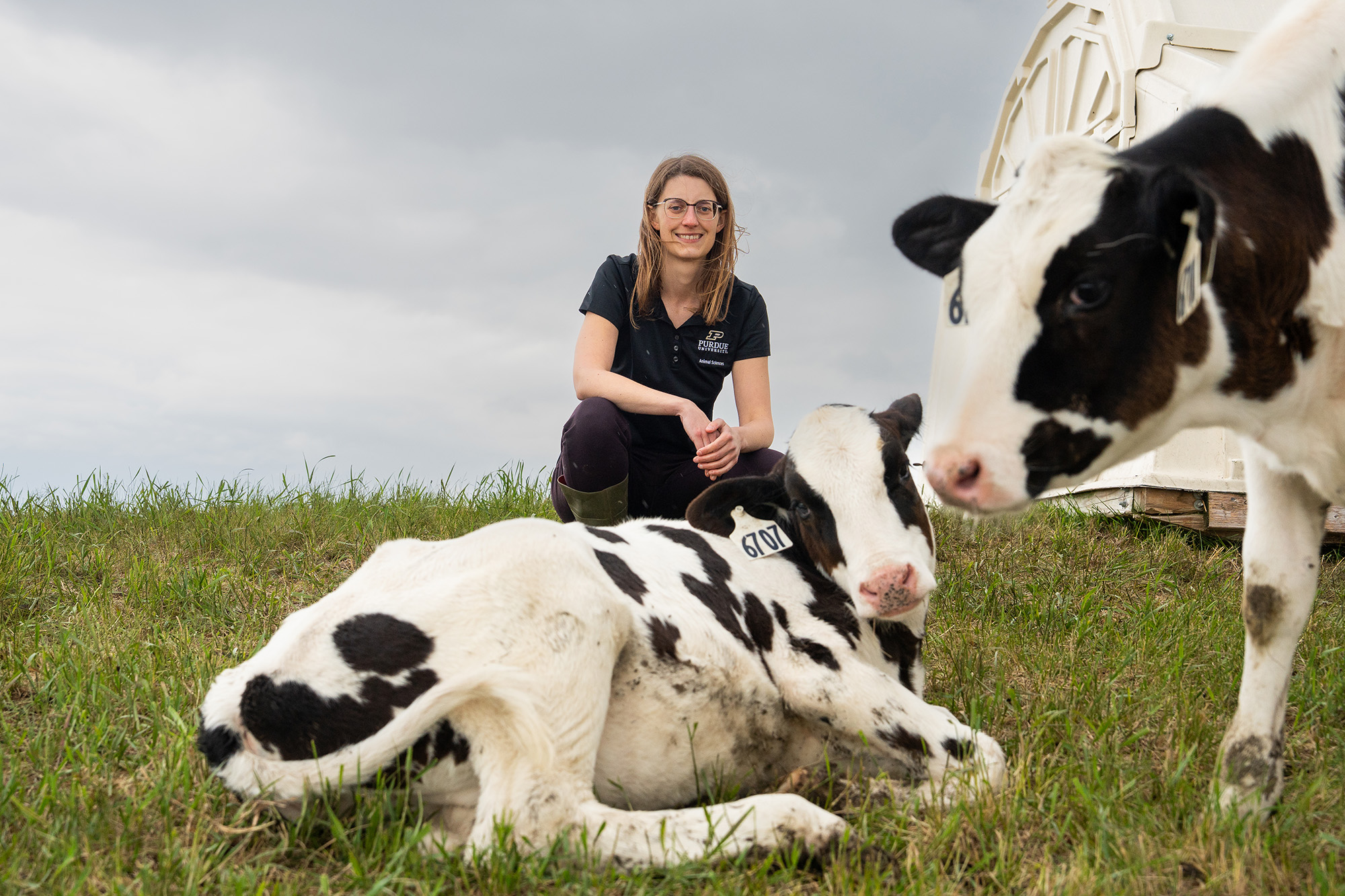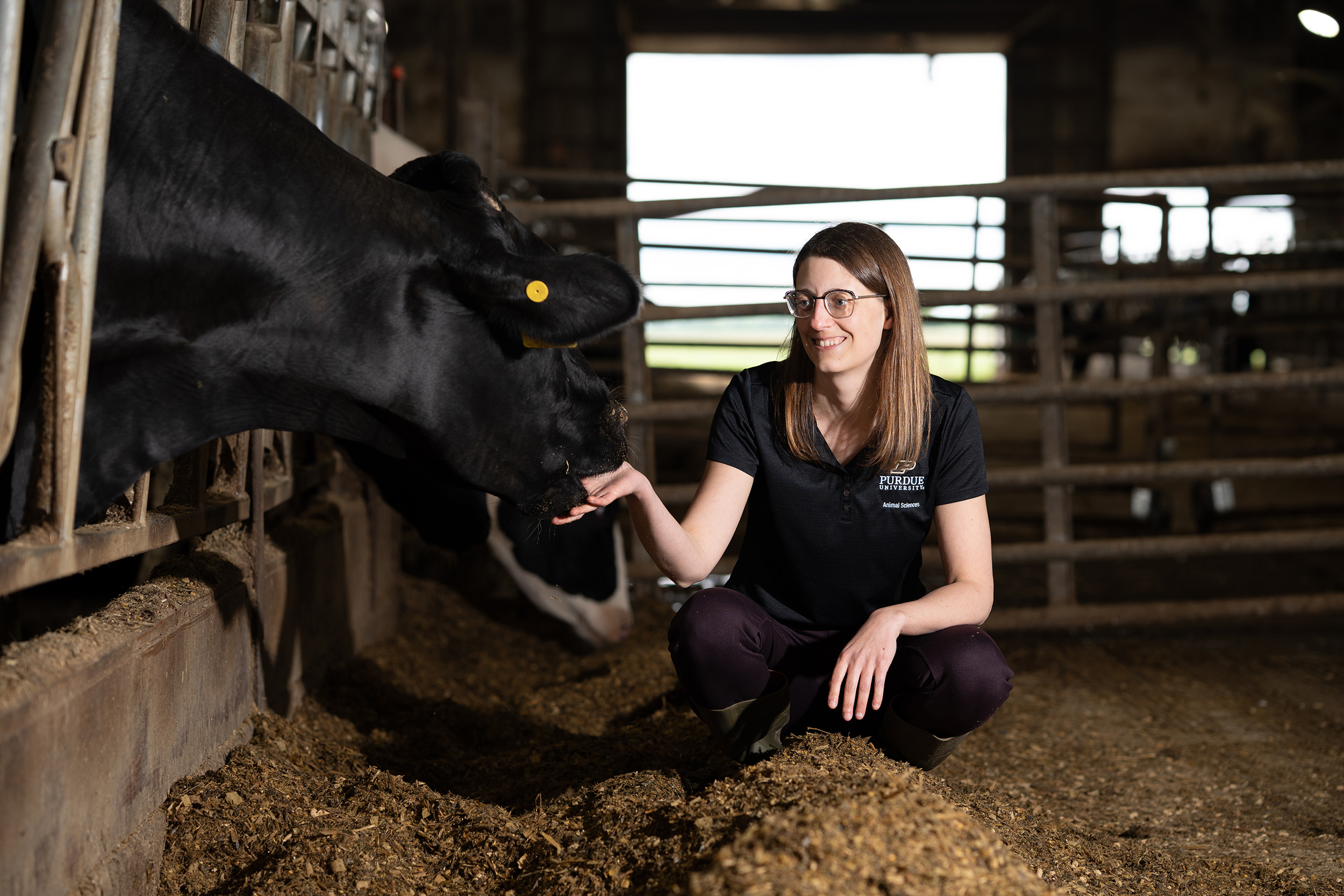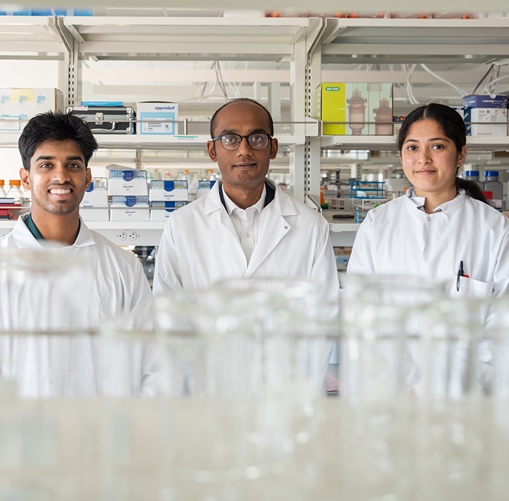Heather Neave advances dairy welfare and mentors future scientists
Heather Neave, assistant professor in the Purdue Department of Animal Sciences, is an applied ethologist and animal welfare scientist who focuses on the behavior, welfare and management of dairy cattle.
Neave earned her bachelor's degree in biology with a minor in psychology from the University of Victoria in Canada. Growing up, she wanted to become a veterinarian as a way to help animals, but during her time as an undergraduate student, that perspective began to shift.
“I have a strong passion for improving the lives of animals,” Neave said. “As part of my internship with large animals, I did a research project with a dairy nutritionist, alongside other undergrads and grad students working in animal welfare in dairy cattle at the University of British Columbia. With this exposure to research and animal welfare, I learned that there were other ways to help animals other than to be a vet.”
Neave found the field of animal welfare science deeply compelling.
“It is such a fascinating area of study to be able to improve the way we manage animals by understanding their behavior and how they think and feel.”
Neave then completed her master’s and doctoral degrees in the Animal Welfare Program at the University of British Columbia, where she studied dairy cattle behavior and welfare. Her graduate research focused on understanding how individual animals respond to stress and how their emotional states can be measured.
After receiving her Ph.D., Neave completed two postdoctoral positions focused on dairy cattle welfare. From 2019 to 2021, her first post-doctoral research fellowship was in the Animal Behavior and Welfare group at AgResearch, New Zealand, which was a collaboration with DairyNZ. From 2021 to 2023, she completed her second postdoctoral fellowship with the Behavior, Stress and Welfare group in the Department of Animal and Veterinary Sciences at Aarhus University in Denmark.
Neave joined the Department of Animal Sciences in January 2024. In the department, she has focused her research on dairy cattle. Her work looks at how cows behave in different housing environments and what those behaviors can tell us about their emotional welfare.
 Heather Neave’s research explores the impact of early-life experiences and housing on calf welfare, including emotional state and bonding between cows and calves.
Heather Neave’s research explores the impact of early-life experiences and housing on calf welfare, including emotional state and bonding between cows and calves. “We are currently exploring novel indicators of emotional state – particularly those that might indicate if a cow is ‘happy’,” Neave said. “We want these indicators to be measures that are practical to identify on-farm, or for standard welfare assessment programs to implement.”
Neave’s lab is currently examining several behavioral and physiological measures of positive emotional states in dairy cattle. One area of focus is grooming behavior and brush preference.
“Cows generally first chose the swinging-rotating brush, but this was not preferred by all cows. Swingability seems to be a key feature in brush design, but offering multiple brush types may support natural behavior and individual preference,” Neave said.
Another project explores how ear postures may reflect a cow’s emotional state, particularly in positive or relaxed situations. Her team is developing a computer vision model to automate ear position detection using cameras installed in pens. Heather Neave, assistant professor of animal sciences at Purdue University, interacts with a dairy cow while observing behavior as part of her research on emotional states in cattle.
Heather Neave, assistant professor of animal sciences at Purdue University, interacts with a dairy cow while observing behavior as part of her research on emotional states in cattle. Neave is also investigating physiological indicators of mood, specifically endocannabinoids, which may rise during positive experiences and drop during stress.
“Endocannabinoids are lipid-based signaling molecules produced naturally in the body. They help regulate functions like stress, pain, appetite and mood,” Neave said. “In both humans and animals, certain endocannabinoids increase during pleasurable or rewarding experiences and decrease during stress. My lab is exploring whether levels of endocannabinoids, detectable in blood and milk, might reflect their emotional state.”
Neave hopes this research could lead to practical applications on farms.
“This could serve as a novel, non-invasive physiological marker of positive welfare,” Neave said.
Beyond research, Neave is committed to mentoring the next generation of animal welfare scientists.
“I hope students in my lab gain both confidence and competence in conducting applied animal behavior and welfare research,” Neave said. “My students gain technical skills, such as behavioral data collection, statistical analysis, oral presentation and science communication skills, but just as importantly they also gain important soft skills like critical thinking, intellectual curiosity and a deeper appreciation for the complexity of animal welfare and specifically evaluation of emotional states.”
Neave fosters a collaborative lab environment where students are encouraged to think critically, ask questions and contribute to animal welfare science. She aims to prepare them for careers in research, veterinary medicine, policy or farming with a strong foundation in science and compassion for animals. Her goal is to help students understand how their research and work in animal behavior and welfare can lead to meaningful improvements in animals’ lives.






